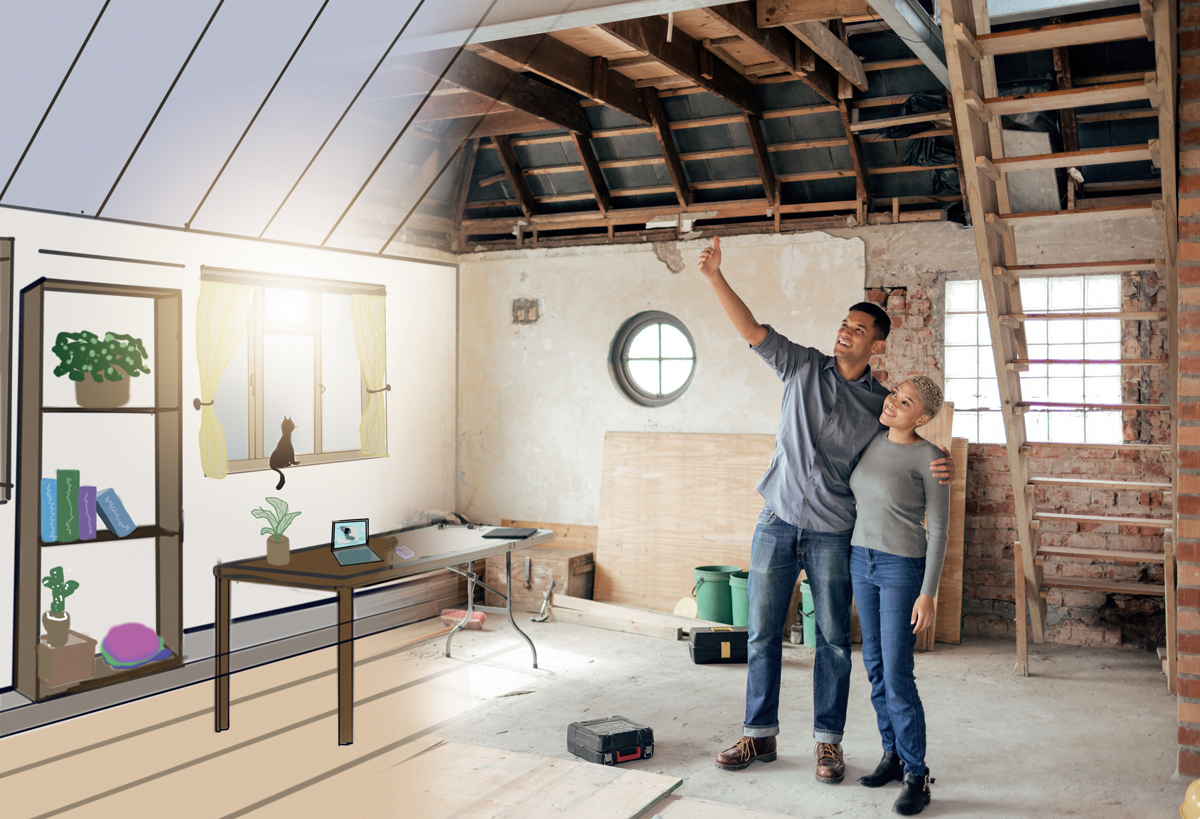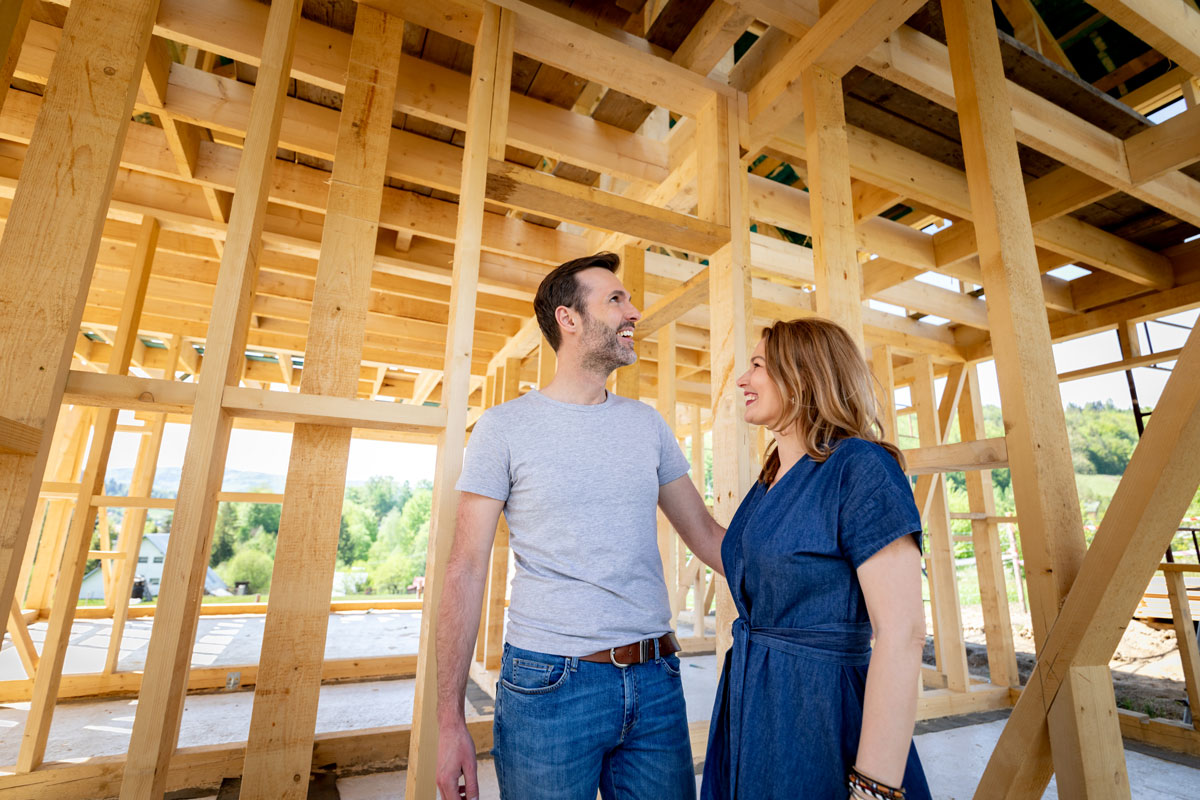If you’ve been considering entering the realm of real estate investment, house flipping may have captured your interest. Flipping houses for profit has always been a popular strategy, but given the shifting landscape of the housing market, you may question, “Is flipping houses still worth it in 2024?”
Let’s investigate the fundamentals and the current status of the US home flipping market. We will also provide a detailed examination of the advantages, drawbacks, and legal aspects to help you make a well-informed choice.
Understanding House Flipping
House flipping, a real estate investment strategy, involves purchasing a house on the cheap, fixing it up nicely, and then selling it for a good profit. But here’s the trick – you’ve got to do it quickly to keep things exciting and minimize risks. The real magic happens when the housing market is booming, or you’ve worked your makeover magic so well that people can’t resist buying. Sometimes, flippers skip the renovations and sell the house as it is.
The goal is to buy low, make it awesome, and sell high – making more than what you spent in the first place. Overall, profitable house flipping is a process that requires strategic planning, market awareness, and a keen eye for potential.
The State of the Home Flipping Market in 2024
As we enter 2024, it’s crucial to assess the pulse of the US home-flipping market. According to recent data, flipped homes accounted for 8.4% of all US home sales in 2022, marking the highest percentage since 2005. However, it’s essential to note that the landscape has evolved. The road to real estate riches is no longer just about property appearance and sold signs; it demands a strategic approach.
In 2023, the market faced hurdles due to rising inflation and interest rates, leading to a slowdown in house-flipping activity. However, as we enter 2024, the tide is turning in favor of investors. Interest rates have become more stable, encouraging a renewed interest in house flipping. Attom Data Solutions reports a 27.5% return on investment, translating to around $66,500 in profit.
Compared to the stock market’s average return of 10%, house flipping stands out. The aftermath of the pandemic-induced inflation created unique challenges, affecting the pace of house flipping. However, with interest rates stabilizing and economic conditions improving, 2024 is a promising year for aspiring profitable house flippers. The potential for profitable property price shifts and a more favorable cost of borrowing contribute to the resurgence of house-flipping activity.
Pros and Advantages of House Flipping in 2024
House flipping isn’t just a trend; it’s an investment opportunity with plenty of upsides for the savvy investor. When done correctly, it offers a range of benefits that can make it a profitable business for real estate investors. Understanding these pros can help answer the question, “Is flipping houses worth it?”
1. Profit Potential
One of the primary advantages of flipping houses is the potential for substantial profits. A well-executed flip can generate considerable returns on investment, mainly when the property is acquired at a favorable price and renovations are carried out effectively.
2. Control Of Investment
House flippers enjoy complete control over their investments, from property selection to determining the final resale price. This autonomy allows for strategic decision-making and creative freedom in the flipping process.
3. Market Knowledge
Staying well-informed about local real estate markets allows flippers to identify opportunities and trends. Understanding property valuations, market dynamics, and potential dangers improves decision-making and profit maximization.
4. Skill Utilization
Individuals with renovation skills can use their experience to add value. By transforming a fixer-upper into a dream house, you’re not just earning on the investment but adding value with your particular skills.
5. Diversification
For investors with a diverse real estate portfolio, house flipping provides an additional income stream and helps diversify their investment strategy, reducing risk.
6. Short-Term Investment
Unlike long-term rental properties, house flipping has a shorter investment horizon. This can be appealing to investors seeking quicker returns on their capital.
7. Economic Stimulation
Flipping houses can contribute positively to local economies by revitalizing neighborhoods, creating jobs, and raising property value.
Cons and Risks of House Flipping in 2024
While the potential for profits is enticing, house flipping comes with its set of challenges:
1. Capital Risk
Acquiring and financing properties can be expensive, and unexpected market downturns or budget overruns can lead to significant financial losses.
2. Time-Consuming
Successful house flipping requires a lot of time and effort. It can be a full-time endeavor from property acquisition to renovations, paperwork, marketing and more.
3. Market Volatility
The success of house flipping is closely tied to the real estate market’s health. Economic slowdowns, rising interest rates, or an oversupply of homes can affect property values and demand, making it easier to sell a flipped home by slashing the price.
4. Unforeseen Issues
Renovation projects can uncover unexpected problems, impact profits, and extend project timelines.
5. Fluctuating Costs
Material and labor expenses might fluctuate, making sticking to a set budget difficult.
6. Tax Implications
Short-term capital gains from flipping houses can be subject to higher tax rates, which can be substantial, depending on the profit margin and the investor’s tax bracket.
Legal Considerations To Keep in Mind
Understanding real estate law secures your investment and ensures a smooth transaction in house flipping. Every stage demands careful consideration, from following Federal Housing Administration (FHA) requirements to understanding the implications of mortgage fraud and ensuring your improvements comply with local zoning and building codes. Equally crucial is the clarity of your property’s title and your transparency in disclosing the property’s condition to potential buyers.
Although navigating these legal waters may seem difficult, you can start your house-flipping journey with confidence knowing that you’re ready to take on the legalities head-on for a successful and compliant flip with careful research, open communication, and possibly the advice of Attorney Ben Weaver, a legal expert.
Final Thoughts on House Flipping
Entering the house flipping market in 2024 brings unique challenges and opportunities. Whether you’re negotiating the complex legal landscape, aiming for maximum profitability, or assuring a smooth and compliant flip, the advice of an experienced real estate attorney is invaluable. Ben Weaver protects your investments with his depth of experience, keen insight, and thorough understanding of real estate law.
With Ben’s assistance, you can confidently tackle legal complexities, optimize your investment strategy, and realize the full potential of your house-flipping efforts. Contact us today and take the first step towards turning your house-flipping goals into a profitable reality.
Planning to invest in property, or start flipping homes? We can help!
Accomplish your real estate goals with 23 Legal: (847) 447-6004
Why Choose 23 Legal
23 Legal offers Real Estate and Estate Planning legal services to individuals, families, community associations and small business owners throughout Chicagoland. We know how intimidating “the law” can be. In fact, when most people think of law offices, they think of stuffy leather chairs, huge wooden desks and pompous lawyers who charge outrageous fees. That’s not us! We believe in 1-to-1; the same lawyer should work with you all the way through. Whether you have an estate planning issue, family trust concern, or you have a legal problem in regard to a new home, business, real estate or remodel, you need a lawyer who cares. That’s where Ben comes in! We are great listeners; more than that, we are lawyers who believe that our clients always come first.




